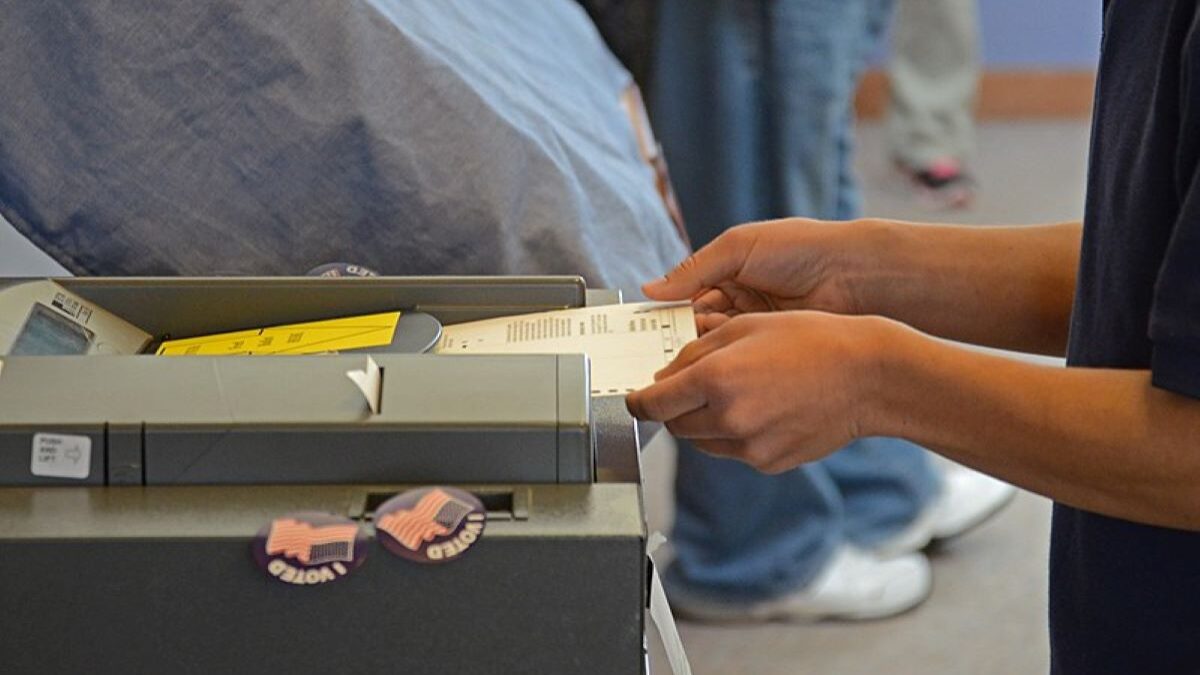
Ranked-choice voting (RCV) leads to voter disenfranchisement and chaotic elections, a newly released video shows.
Under RCV, voters rank candidates in order of preference. If no candidate receives more than 50 percent of first-choice votes in the first round of voting, the last-place finisher is eliminated, and his votes are reallocated to the voter’s second-choice candidate. This process continues until one candidate receives a majority of votes.
Published by the Foundation for Government Accountability (FGA), the two-minute-long explainer video showcases how the use of RCV in elections leads to confused voters and discarded ballots. It highlights the issue of “ballot exhaustion,” a term used to describe what happens when voters select only one candidate on their ballot and then have their ballots tossed because their first choice didn’t win a majority in the first round.
A study published by FGA last year discovered thousands of “exhausted” ballots that were discarded in states and localities that have employed RCV in recent elections. In Alaska’s 2022 special congressional election, for example, more than 11,000 of the almost 15,000 “exhausted” ballots were thrown out because those electors “voted for only one Republican candidate and no one else.” Meanwhile, more than 8,000 ballots were deemed “exhausted” and effectively thrown out in a 2018 Maine congressional race, according to FGA.
“The result is that a much smaller, manufactured pool of voters ultimately decides the election to the exclusion of thousands of other voters,” the video narrator said.
The video also documents how the use of RCV often results in electoral victories for Democrats.
In 2022, Democrat Mary Peltola won Alaska’s at-large congressional seat even though “nearly 60 percent of voters [cast] their ballots for a Republican.” RCV also played a major role in helping Alaska GOP Sen. Lisa Murkowski win reelection during the 2022 midterms. Efforts are currently underway in the state to have a measure repealing RCV appear on Alaska’s 2024 general election ballot.
A similar scenario played out in the aforementioned 2018 Maine congressional race, in which then-incumbent GOP Rep. Bruce Poliquin lost to Democrat Jared Golden despite Poliquin winning the most votes in the first round of voting.
“Ultimately, ranked-choice voting undermines voters’ confidence in the integrity and accuracy of elections,” FGA Marketing Director Victoria Eardley told The Federalist. “Trust is something that is very hard to gain and very easy to lose, and the track record of ranked-choice voting shows it’s the fastest way to erode trust.”
RCV proponents use misleading talking points about vague ideals of “fairness” to distract from the system’s negative effects on voter confidence and the efficiency of elections. A polling memo previously obtained by The Federalist revealed that RCV supporters are searching for ways to deceive voters into adopting the system, by analyzing what pro-RCV talking points work best in convincing voters to get on board.
Democracy Found, an RCV advocacy group, applied these tactics in an attempt to mislead voters and Wisconsin legislators about how a top-five ranked-choice voting system would work ahead of a state Senate Committee hearing on a pro-RCV bill in December.








